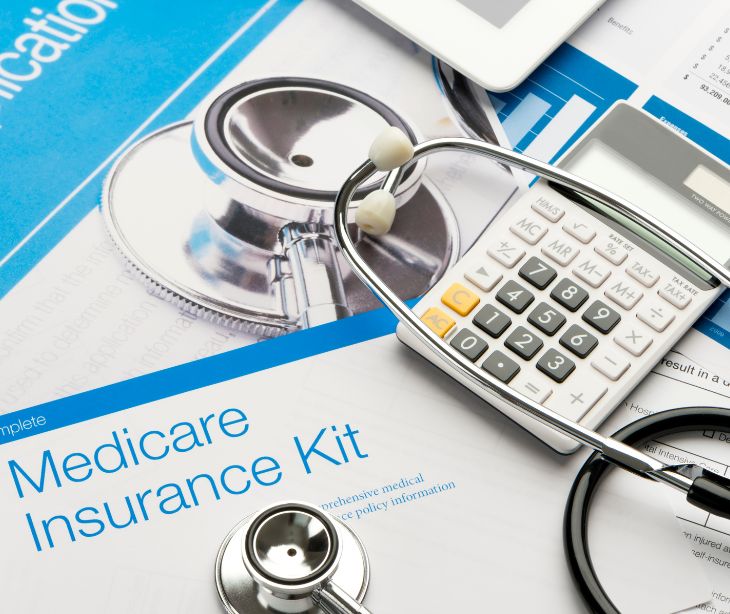
Medicare fraud and abuse are significant issues that threaten the integrity of the Medicare program. These unethical practices can be costly and jeopardize the health and well-being of beneficiaries.
Related: What is the role of the Centers for Medicare & Medicaid Services?
Medicare fraud: Understanding the problem
Medicare fraud plagues the healthcare system and drains valuable resources. While measuring the exact extent of the problem is difficult, fraudulent activities in federal healthcare programs cost taxpayers billions of dollars each year. As the Medicare program continues to serve many beneficiaries, the impact of these losses and risks becomes even more significant.
What constitutes Medicare fraud?
Medicare fraud encompasses various deceptive practices aimed at defrauding the Medicare program. Some common examples of Medicare fraud include:
- Knowingly submitting false claims or misrepresenting facts to obtain payments for services that were not provided or were medically unnecessary.
- Engaging in kickback schemes, including offering or receiving remuneration to induce referrals for services reimbursed by federal healthcare programs.
- Making prohibited referrals for certain designated health services.
- Billing for services at a higher level of complexity than provided or documented in medical records.
- Ordering medically unnecessary items or services for patients.
- Paying for referrals of federal healthcare program beneficiaries.
- Billing Medicare for patient appointments that were not attended.
Consequences of Medicare fraud
Medicare fraud is not only unethical but also illegal. Fraudulent activities expose individuals or entities to potential criminal, civil, and administrative liability. The consequences of committing Medicare fraud can include fines, imprisonment, and penalties.
Given the severe consequences of Medicare fraud, healthcare professionals must adhere to ethical standards, accurately document and bill for services, and ensure compliance with all relevant laws and regulations.
Read also: CMS responds to third-party data breach
In the news
Fraudsters are increasingly targeting seniors by acquiring their private Medicare information under the guise of offering free services or products that often fail to materialize. According to a recent alert from the U.S. Department of Health and Human Services (HHS) Office of Inspector General (OIG), one prevalent scheme involves billing Medicare for unnecessary urinary catheters that may never be delivered to the enrollees. Scammers contact seniors through phone calls, internet ads, and text messages, claiming to work for or on behalf of Medicare. Their goal is to collect Medicare numbers and personal information, which they then use to submit false claims. In many cases, these fraudulent durable medical equipment companies pay unethical medical providers to authorize unnecessary equipment, exacerbating the issue.
Recent incidents show the broader scope of durable medical equipment fraud. In one case, Steven Richardson, owner of two telemedicine companies, pleaded guilty to a $110 million scheme involving unnecessary knee and back braces. Telemarketers targeting Medicare enrollees collaborated with Richardson, whose companies generated physician orders based on falsified medical examinations.
Medicare abuse: What you need to know
While fraud involves intentional deception for personal gain, abuse refers to practices that may indirectly result in unnecessary costs to the Medicare program. Medicare abuse occurs when healthcare providers fail to provide medically necessary services or do not meet professionally recognized standards of care.
Examples of Medicare abuse include:
- Billing for unnecessary medical services.
- Charging excessively for services or supplies.
- Misusing codes on claims (e.g., upcoding or unbundling codes).
- Providing substandard or low-quality care.
Laws combating Medicare fraud and abuse
To combat Medicare fraud and abuse, several federal laws and regulations are in place to protect the integrity of the Medicare program and hold individuals and entities accountable for their actions. Understanding these laws is essential for healthcare professionals to avoid engaging in fraudulent or abusive practices. Some of the key laws include:
- The False Claims Act (FCA)
- The Anti-Kickback Statute (AKS)
- The Physician Self-Referral Law (Stark Law)
- The Criminal Health Care Fraud Statute
- The Exclusion Statute
- The Civil Monetary Penalties Law (CMPL)
Compliance programs for physicians
Implementing a compliance program is a proactive approach to preventing fraud and abuse and ensuring compliance with federal laws and regulations. A comprehensive compliance program helps physicians identify potential risks, establish internal controls, and educate staff members on proper coding, billing, and documentation practices.
The key components of a compliance program include:
- Conducting internal monitoring and auditing to identify potential compliance issues.
- Implementing compliance and practice standards consistent with federal laws and regulations.
- Designating a compliance officer or contact responsible for overseeing the program.
- Providing appropriate training and education to staff members on compliance requirements.
- Responding appropriately to detected offenses and developing corrective action plans.
- Establishing open lines of communication with employees to encourage reporting of compliance concerns.
- Enforcing disciplinary standards through well-publicized guidelines.
Related: 7 elements of a compliance program
FAQs
Does HIPAA apply to healthcare scams?
Yes, HIPAA (Health Insurance Portability and Accountability Act) applies to all healthcare-related activities, including the prevention and investigation of healthcare scams. Any unauthorized access, use, or disclosure of protected health information constitutes a violation of HIPAA.
Do I need consent to investigate healthcare scams?
Yes, in the context of healthcare scams, obtaining proper consent is needed when conducting investigations or collecting information from individuals. This ensures compliance with privacy laws and regulations and helps maintain the integrity of the investigation process.
What can I use to investigate healthcare scams?
To effectively investigate healthcare scams, use appropriate resources such as forensic technology, data analysis tools, and legal expertise. These tools can aid in identifying fraudulent activities, analyzing patterns, and gathering evidence to combat healthcare scams effectively.
Subscribe to Paubox Weekly
Every Friday we'll bring you the most important news from Paubox. Our aim is to make you smarter, faster.




